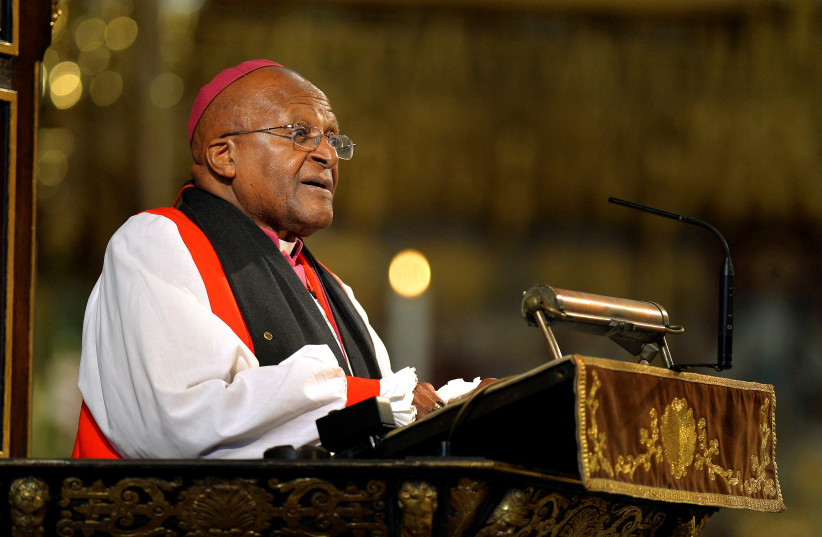Archbishop Desmond Tutu, Nobel Peace Prize laureate and veteran of South Africa's struggle against white minority rule died on Sunday at the age of 90, the presidency said.
In 1984 Tutu Key dates in the life of South African cleric and activist Desmond Tutu won the Nobel Peace Prize for his non-violent opposition to apartheid. A decade later, he witnessed the ends of that regime and he chaired a Truth and Reconciliation Commission, set up to unearth atrocities committed during those dark days.
The outspoken Tutu was considered the nation's conscience by both Black and white, an enduring testament to his faith and spirit of reconciliation in a divided nation.
Tutu was diagnosed with prostate cancer in the late 1990s and in recent years he was hospitalized on several occasions to treat infections associated with his cancer treatment.
"The passing of Archbishop Emeritus Desmond Tutu is another chapter of bereavement in our nation’s farewell to a generation of outstanding South Africans who have bequeathed us a liberated South Africa," President Cyril Ramaphosa said.

"Desmond Tutu was a patriot without equal."
The presidency gave no details on the cause of death.
Tutu preached against the tyranny of the white minority and even after its end, he never wavered in his fight for a fairer South Africa, calling the Black political elite to account with as much feistiness as he had the white Afrikaners.
In his final years, he regretted that his dream of a "Rainbow Nation" had yet to come true.
"Ultimately, at the age of 90, he died peacefully at the Oasis Frail Care Centre in Cape Town this morning," Dr. Ramphela Mamphele, acting chairperson of the Archbishop Desmond Tutu IP Trust and Co-ordinator of the Office of the Archbishop, said in a statement on behalf of the Tutu family.
A frail-looking Tutu was seen in October being wheeled into his former parish at St George's Cathedral in Cape Town, which used to be a safe haven for anti-apartheid activists, for a special thanksgiving service marking his 90th birthday.
Dubbed "the moral compass of the nation," his courage in defending social justice, even at great cost to himself, always shone through - and not just during apartheid. He often fell out with his erstwhile allies at the ruling African National Congress party over their failures to address the poverty and inequalities that they promised to eradicate.
Just five feet five inches (1.68 meters) tall and with an infectious giggle, he helped rouse grassroots campaigns around the world that fought for an end to apartheid through economic and cultural boycotts.
Talking and traveling tirelessly throughout the 1980s, Tutu became the face of the anti-apartheid movement abroad while many of the leaders of the rebel ANC, such as Nelson Mandela, were behind bars.
